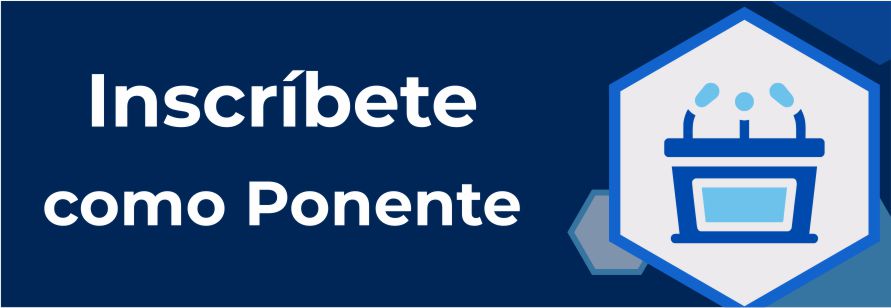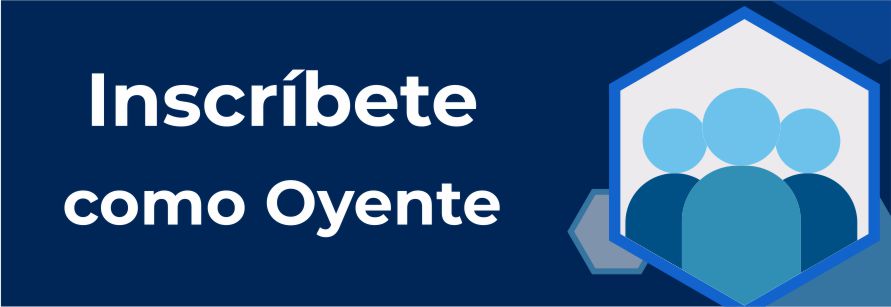Applying Authentic Oral Production to Improve Speaking Fluency Through Project-Based Learning Approach on EFL Students
Resumen
This paper explores the influence of authentic oral production on speaking fluency through the implementation of project-based learning (PBL) in an EFL classroom. Conducted in a private secondary school in Machala, Ecuador, this action research involved 20 students aged 13–14 who had attained A2-level English proficiency. Pre- and post-intervention tests were used to assess speech fluency using a rubric that measured pronunciation, grammar, accuracy, speech rate, and repairs. Additionally, student perceptions were evaluated through surveys. Results showed a marked improvement in speaking fluency following the intervention. The students also reported increased confidence and engagement, highlighting the effectiveness of combining authentic oral tasks with the PBL approach. The findings suggest that this methodology not only enhances fluency but also fosters critical thinking, creativity, and collaboration among learners.
Descargas
Citas
Abubakar, M. S. (2015). IMPROVING THE SECOND YEAR STUDENTS SPEAKING ABILITY THROUGH PROJECT-BASED LEARNING (PBL) AT MTSN MODEL MAKASSAR. ETERNAL (English, Teaching, Learning, and Research Journal), 1(2), 216-228.
Aldabbous, S. (2018). Project-based learning: Implementation & challenges. International Journal of Education, Learning and Development, 6(3), 71-79.
Awang, H., & Ramly, I. (2008). Creative thinking skill approach through problem-based learning: Pedagogy and practice in the engineering classroom. International Journal of Educational and Pedagogical Sciences, 2(4), 334-339. Creative Thinking Skill Approach Through Problem-Based Learning: Pedagogy and Practice in the Engineering Classroom (albany.edu)
Barnes, D. (2008). The value of exploratory talk. In N. Mercer & S. Hodgkinson (Eds.), Exploring talk in school (pp. 1-15). Los Angeles, CA: Sage.
Barnes, D., & Todd, F. (1977). Communicating and learning in small groups. London, UK: Routledge, Kegan Paul.
Barrows, H. (2003). Response To “The Problem with Problem Based Medical Education: Promises Not Kept” by R.H Gkew. Biochemistry and Molecular Biology Education. Vol. 31, no.4, pp. 255-256.
Brumfit, C (1984) Communicative methodology in language teaching: The roles of fluency and accuracy, Cambridge: Cambridge University Press.
Chamba, M., & Gavilanes, C. (2018). Authentic audio-visual material in the development of oral fluency in university intermediate English students. Literatura y lingüística, 39, 199-223.
Christopher, H. (2020). How to speak English fluently: Steps and tips to improve your English fluency, and talk like an American..
Conca, M. (2018). All about PBL: How to Learn a Language through Projects. International House World Organisation. Retrieved March 25, 2023, from https://ihworld.com/ih-journal/ih-journal-blog/all-about-pbl-how-to-learn-a-language-through-projects/
EF EPI 2022 – EF English Proficiency Index – Ecuador. (2022). EF Education First. Retrieved March 25, 2023, from https://www.ef.com.ec/epi/regions/latin-america/ecuador/
Cucchiarini, C., Strik, H., & Boves, L. (2002). Quantitative assessment of second language learners' fluency: comparisons between read and spontaneous speech. The Journal of the Acoustical Society of America, 111(6), 2862–2873. https://doi.org/10.1121/1.1471894
De Bono, E. (1993). Serious Creativity: Using the Power of Interal Thinking To Create New Ideas. New York: Harper Collins.
Dewey, J. (1938). Experience and education. New York, NY: Kappa Delta Pi. (Republished by Collier, 1963).
Dewey, J. How We Think: A Restatement of the Relation of Reflective Thinking to the Educative Process; Health and Company: Boston, DC, USA, 1933.
EF EPI 2022 – EF English Proficiency Index – Ecuador. (2022). EF Education First. Retrieved March 25, 2023, from https://www.ef.com.ec/epi/regions/latin-america/ecuador/
EFFECTS OF PROJECT-BASED LEARNING ON SPEAKING ABILITIES OF NON-ENGLISH MAJOR CHINESE STUDENTS Di Yang (didi089322@gmail.com) Suranaree University of Technology, Thailand Nattaya Puakpong (nattaya@sut.ac.th) Suranaree University of Technology, Thai
Ellis, R. (2017). Task-based language teaching. The Routledge handbook of instructed second language acquisition, 108, 125.
Ennis, R.H. A taxonomy of critical thinking abilities and dispositions. In Teaching Thinking Skills: Theory and Practice; Baron, J.B., Sternberg, R.J., Eds.;W. H. Freeman: New York, NY, USA, 1987; pp. 9–26.
Finocchiaro, M., & Brumfit, C. (1983). The functional-notional approach: From theory to practice. Oxford University Press, 200 Madison Ave., New York, NY 10016.
from http://www.sfu.ca/educ260/documents/myths.pdf
Housen, A., Kuiken, F., & Vedder, I. (2012). Complexity, accuracy and fluency: Definitions, measurement and research. In A. Housen, F. Kuiken, & I. Vedder (Eds.), Dimensions of L2 performance and proficiency: Complexity, accuracy and fluency in SLA (pp. 1– 20). John Benjamins Publishing Company
https://scottthornbury.wordpress.com/2012/02/26/a-is-for-automaticity/
Jiménez-Aleixandre, M.P.; Puig, B. Argumentation, Evidence, Evaluation and Critical Thinking; Fraser, B.,Tobin, K.G., Mc Robbie, Eds.; Second International Handbook of Science Education; Springer: Dordrecht, The Netherlands, 2012; Volume 2, pp. 1001–1017.
Katherine Gonzalez, D., Jhonatan Correa Molina, O., & Rojas Cardona, B. S. (2017). Project-Based Learning to develop oral production in English as a foreign language. International journal of education and information technologies, 11, 87-96.
Kelly, G. A. (1955). The psychology of personal constructs. New York, NY: Norton
Kleiman, G. M. (2001). Myths and realities about technology in K–12 schools. LNT Perspectives, 14, 1–8. Retrieved
Kothari, C. R. (2004). Research methodology: Methods and techniques. New Age International.
Kuhn, D. The Skills of Argument; Cambridge University Press: Cambridge, UK, 1991.
Lennon, P. (1990). Investigating fluency in EFL: A quantitative approach. Language learning, 40(3), 387-417.
Lintunen, P., Mutta, M., & Peltonen, P. (Eds.). (2019). Fluency in L2 learning and use. Multilingual Matters.
Littlewood, W., 1984. Foreign and second language learning: Language acquisition research and its implications for the classroom. Cambridge: Cambridge University Press.
Lopez, J. I., Becerra, A. P., & Ramírez-Ávila, M. R. (2021). EFL speaking fluency through authentic oral production. Journal of Foreign Language Teaching and Learning, 6(1), 37-55.
Mosquera Bargiela, I.; Puig Mauriz, B.; Crujeiras Pérez, B.; Blanco Anaya, P. Pensamiento crítico en educación superior: Análisis de un grupo de discusión. Enseñanza de las ciencias 2017, extra, 2799–2804.
Piaget, J. (1951). The psychology of intelligence. London, UK: Routledge and Kegan Paul
Polanyi, M. (1958). Personal knowledge: Towards a post-critical philosophy. Chicago, IL: The University of Chicago Press.
Saito, K., & Plonsky, L. (2019). Effects of second language pronunciation teaching revisited: A proposed measurement framework and meta‐analysis. Language Learning, 69(3), 652–708.
https://doi-org/10.1111/lang.12345
Saiz Sanchez, C.; Fernández Rivas, S. Pensamiento Crítico y Aprendizaje Basado En Problemas Cotidianos Critical Thinking and Everyday Problem Based Learning. Rev. Docencia Univ. 2012, 10, 325–346.
Sandholtz, J., Rignstaff, C., & Dwyer, D. (1997). Teaching with technology: Creating student-centered classrooms. New York: Teachers College Press.
Santos, J., & Ramírez-Ávila, M. (2022). Improving speaking fluency through 4/3/2 technique and self-assessment. Assessment, 26(2).
Skehan, P. (1996). Second language acquisition research and task-based instruction. In J. Willis, & D. Willis (Eds.), Challenge and Change in Language Teaching (pp. 17-30). Oxford: Heinemann.
Schegloff, E. A., Jefferson, G., & Sacks, H. (1977). The preference for self-correction in the organization of repair in conversation. Language, 53(2), 361-382.
Siegel, H. Educating Reason: Rationality, Critical Thinking and Education; Routledge: New York, NY, USA, 1988.
Solomon, G. (2003). Project-based learning: A primer. Technology and learning-dayton-, 23(6), 20-20.
Tavakoli, P., & Skehan, P. (2005). Strategic planning, task structure, and performance testing. In R. Ellis (Ed.), Planning and task performance in a second language (pp. 239–276). John Benjamins Publishing Company.
Tedick, D & Wesely, P. (2015) A review of research on content-based foreign/second language education in US K-12 contexts, Language, Culture and Curriculum, 28:1, 25-40. https://doi.org/10.1080/07908318.2014.1000923
Vygotsky, L. S. (1962). Thought and language. Cambridge, MA: MIT Press. Boundary.
Vygotsky, L. S. (1978). Mind in society. Cambridge, MA: Harvard University Press.
Walker, M. L. (1993). Participatory action research. Rehabilitation Counseling Bulletin, 37, 2-2.
Añapa Quiñónez, P. L., Recalde Páez, J. P., Fey Zalamea, C. D., Rivera Quiñónez, E. D., & Acuri Pacheco, D. A. (2025). Estrategias para la Implementación Efectiva del Aprendizaje Híbrido (Blended Learning) en Instituciones Educativas Rurales del Ecuador: Un Análisis Integral. Ciencia Y Reflexión, 4(2), 1160–1184. https://doi.org/10.70747/cr.v4i2.325
Agila Mocha, R. J., Vivanco Ureña, C. I., León Bravo, F. E., & Reyes Carrión , J. P. (2025). Software Educativos para el Proceso de Enseñanza Aprendizaje de Matemáticas en Bachillerato. Ciencia Y Reflexión, 4(2), 1341–1369. https://doi.org/10.70747/cr.v4i2.334
Chen Shih , J. (2025). Relación entre inteligencia emocional y rendimiento académico en estudiantes de nivel superior de Arequipa en la postpandemia . Ciencia Y Reflexión, 4(2), 648–667. https://doi.org/10.70747/cr.v4i2.299
Derechos de autor 2025 Stanislaus Oshimeje, Ivanova Daniela Flores Barahona

Esta obra está bajo licencia internacional Creative Commons Reconocimiento 4.0.













.png)




















.png)
1.png)


